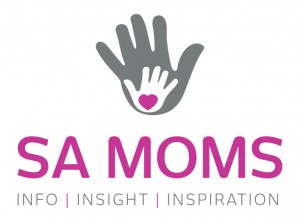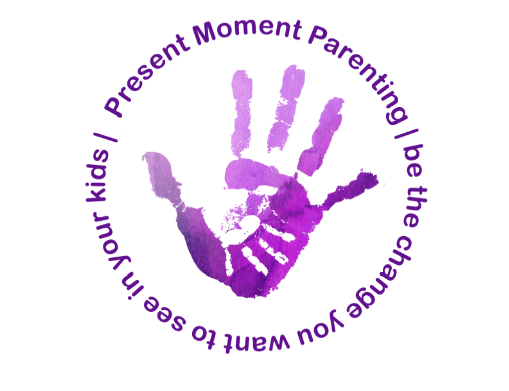
It is in our human nature to want to progress, to change, to improve and to strive for more. We want better careers, we want more money, we want to fix our relationships, sort out our health, make sure we’re building our friendships and maintaining our homes.
And nowhere does this passion for perfection exist more than with our children. We will go far beyond the call of duty to ensure that our children are getting the best help possible for anything we deem to be lacking. They have extra lessons and additional classes and speech therapy and play therapy and OT and physio and manners workshops and life skills training and endless evaluations. We push ourselves to ensure that we’re giving them the right amount of quality time and healthy boundaries and help with their homework.
It isn’t easy. There is always something more that needs to be done, our to do lists just keep getting longer and our time always seems to be shrinking. Ask anyone to rate their children across all seven areas of life and you’ll find at least half of the areas to be falling below the OK mark.
And nowhere does this passion for perfection exist more than with our children. We will go far beyond the call of duty to ensure that our children are getting the best help possible for anything we deem to be lacking. They have extra lessons and additional classes and speech therapy and play therapy and OT and physio and manners workshops and life skills training and endless evaluations. We push ourselves to ensure that we’re giving them the right amount of quality time and healthy boundaries and help with their homework.
It isn’t easy. There is always something more that needs to be done, our to do lists just keep getting longer and our time always seems to be shrinking. Ask anyone to rate their children across all seven areas of life and you’ll find at least half of the areas to be falling below the OK mark.
It’s hard work. And it doesn’t ever seem to work. There is always still something that is not quite right. You sort out one issue only to have another crop up. You just get the ADHD under control and they start having night terrors; you deal with the broken arm only to have them slice open their foot; you finally get them into a good school only to find that they’re now being bullied.
So what if I told you it is a lot simpler than you think? What if I told you that your child only actually has ONE problem, not multiple issues?
You’ll probably think I’ve lost the plot – how can the dragon teacher and the dyslexia and the fussy eating and the disobedience and the eczema and the failed maths test and the lost gym kit all be related??
And on that level, of course, they are not necessarily related. Where the relationship comes in is in your perception of what is happening with your child, and the perception that it is wrong / bad / not ok / shouldn’t be happening and that it needs to be fixed / changed / improved / removed.
In short, the only thing that is wrong with your child is that you think there is something wrong with your child.
When we start viewing our children through the lens of already being perfect in this moment, and not as a project that will one day be complete, then everything changes.
We start to ask different questions. We start asking whether the things we thought were problems have some hidden gifts in them that we are not seeing. We start asking if normal is really what we want or if different is just another way of expressing the rich diversity of human life. We start focusing on what we can appreciate about our children exactly as they are and letting go of the impossible ideal in our minds. We start wondering what would happen if we went along with the change that they are bringing instead of fighting them to be like us. We start feeling grateful for what is instead of seeking what will never be.
Does this mean we will never take our child to a doctor or therapist again? That we will never encourage them to try harder or speak more politely? Not necessarily. It just means that when these things come up that we enjoy them as part of the ever changing landscape of our children’s lives and not as the be all and end all of getting our children to be ok.
Did you know that every single one of you reading this article has, right now, at least 3-5 bodily signs that could be read as symptoms? There is no perfect point at which everything is just right. We are beings in flux, ever changing, ever shifting. If we don’t fixate on things as “problems”, they come and go. And each challenge brings us new insights, takes us on a different journey, or shapes us in some beautiful unexplainable way.
The “symptoms” in our lives are a communication and a guiding force and something to be seen as part of the adventure. We are not here to remove all these landmarks from the lives of our children. Our job is to observe and appreciate and to love them as whole in every moment.
Your child does not have a problem outside of the problem in your perception. There is always another way to perceive what is going on. Change the way you look at things and the things you look at will change.
Or in my words, be the change you want to see in your kids!
So what if I told you it is a lot simpler than you think? What if I told you that your child only actually has ONE problem, not multiple issues?
You’ll probably think I’ve lost the plot – how can the dragon teacher and the dyslexia and the fussy eating and the disobedience and the eczema and the failed maths test and the lost gym kit all be related??
And on that level, of course, they are not necessarily related. Where the relationship comes in is in your perception of what is happening with your child, and the perception that it is wrong / bad / not ok / shouldn’t be happening and that it needs to be fixed / changed / improved / removed.
In short, the only thing that is wrong with your child is that you think there is something wrong with your child.
When we start viewing our children through the lens of already being perfect in this moment, and not as a project that will one day be complete, then everything changes.
We start to ask different questions. We start asking whether the things we thought were problems have some hidden gifts in them that we are not seeing. We start asking if normal is really what we want or if different is just another way of expressing the rich diversity of human life. We start focusing on what we can appreciate about our children exactly as they are and letting go of the impossible ideal in our minds. We start wondering what would happen if we went along with the change that they are bringing instead of fighting them to be like us. We start feeling grateful for what is instead of seeking what will never be.
Does this mean we will never take our child to a doctor or therapist again? That we will never encourage them to try harder or speak more politely? Not necessarily. It just means that when these things come up that we enjoy them as part of the ever changing landscape of our children’s lives and not as the be all and end all of getting our children to be ok.
Did you know that every single one of you reading this article has, right now, at least 3-5 bodily signs that could be read as symptoms? There is no perfect point at which everything is just right. We are beings in flux, ever changing, ever shifting. If we don’t fixate on things as “problems”, they come and go. And each challenge brings us new insights, takes us on a different journey, or shapes us in some beautiful unexplainable way.
The “symptoms” in our lives are a communication and a guiding force and something to be seen as part of the adventure. We are not here to remove all these landmarks from the lives of our children. Our job is to observe and appreciate and to love them as whole in every moment.
Your child does not have a problem outside of the problem in your perception. There is always another way to perceive what is going on. Change the way you look at things and the things you look at will change.
Or in my words, be the change you want to see in your kids!







 RSS Feed
RSS Feed